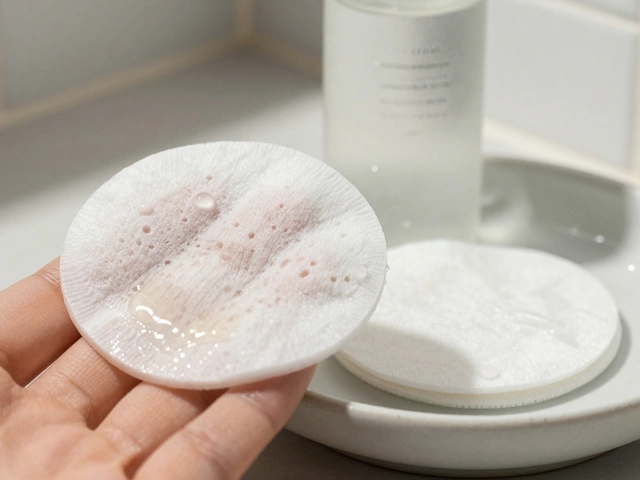Ever wonder what good mental wellbeing actually means? It's not about being cheerful 24/7 or having zero worries. Real mental wellbeing is more like having a mental toolbelt—you can handle stress, bounce back from setbacks, and stay connected with others.
Think of mental wellbeing as the way you relate to your own thoughts and emotions, plus how you handle challenges and connect with the people around you. It's the difference between getting stuck in a stress spiral or taking a breath and moving forward, even if things aren't perfect. Most people don't realize that it's not some rare gift—it's a mix of habits and choices that you can actually build up, day by day.
You don't have to meditate for hours or spend money on fancy apps to improve your mental wellbeing. Simple things like getting enough sleep, being physically active, reaching out to a friend, or just stepping outside for a few minutes can nudge your mood in the right direction. And while social media might make it seem like everyone else has it together, research shows most folks deal with tough feelings just like you do. It's totally normal.
- What Does Good Mental Wellbeing Look Like?
- Common Myths and Misconceptions
- Habits and Practices That Make a Real Difference
- When to Seek Extra Support
What Does Good Mental Wellbeing Look Like?
So what does mental wellbeing really look like in day-to-day life? Let’s get specific. It’s less about smiling on the outside, and more about how you deal with what’s happening inside. Good mental wellbeing means you can recognize and talk about your feelings, even if they’re messy or tough. You don’t have to hide sadness or stress—you find a way to face it and keep going.
One clear sign of strong wellbeing is the ability to handle stress without feeling completely overwhelmed. Studies from places like the Mental Health Foundation show that people who handle stress well aren’t magic—they just use practical tools, like talking things through or taking breaks before things get too much.
Another big part is feeling connected. Whether it’s family, friends, or coworkers, having a group you can rely on makes a huge difference. People with good mental wellbeing build and keep up relationships. This doesn’t mean being a social butterfly; even a couple of close connections count.
But it’s not just about getting support—it’s also about feeling useful and having a sense of purpose. Maybe it’s helping out a neighbor, working on a hobby, or getting through your checklist at work. Research found that people who feel like they’re doing something meaningful are less likely to feel anxious or down.
Good mental wellbeing shows up as flexibility, too. Life will throw curveballs, but if you can adapt to change—maybe mess up, but then try again—that’s a huge win. Everyone struggles sometimes, but when mental wellbeing is strong, setbacks don’t totally flatten you. You get up, maybe slower some days, and try again.
- You notice your emotions, but they don’t control everything you do.
- You can bounce back (even if it takes time) when things go wrong.
- You keep up relationships and feel comfortable reaching out for help.
- You find meaning in everyday stuff, not just big milestones.
Bottom line: mental wellbeing is process, not perfection. It’s about habits, daily choices, and knowing that tough moments are part of the package—for everyone.
Common Myths and Misconceptions
The idea of mental wellbeing tends to get wrapped up in a lot of myths that just aren't true. Some of these beliefs can actually make things worse, because they set us up to expect things that simply aren't realistic. Let’s clear up a few of the most common ones.
- You have to be happy all the time. This one's everywhere. But the truth is, no one is happy 24/7—not even close. A study from the University of California found that people who chase happiness constantly end up feeling worse. It's totally fine—and even healthy—to feel a whole range of emotions.
- Mental health struggles mean weakness. This is a tough myth to kill. But experiencing stress, anxiety, or low moods is just part of being human. Over 70% of adults say they’ve felt overwhelmed or unable to cope at some point in the last year, according to a 2024 survey by Mental Health Foundation (UK).
- If you look strong on the outside, you must feel fine inside. Just because someone seems put together doesn’t mean they aren’t dealing with their own battles. Loads of people hide what they’re really feeling.
- Fixing your mindset fixes everything. Changing how you think can help, but other things matter too—your sleep, food, relationships, even sunshine make a difference. There’s no magic phrase that flips a switch overnight.
- Talking about mental health is attention-seeking. The numbers say otherwise: in the US, nearly 1 in 5 adults live with a mental health condition. Opening up can actually be the push someone else needs to get support, too.
Here’s a quick look at some facts to bust these myths:
| Myth | Reality |
|---|---|
| "Happy people have no worries" | Even people with good mental wellbeing worry and have tough days. |
| "If I need support, I’m weak" | Reaching out is a sign of strength, and most adults need support sometimes. |
| "Mental health is all in your head" | Physical health (like sleep and movement) strongly affects mental wellbeing. |
So, don’t let these old ideas trick you. Feeling low, needing help, or dealing with stress isn’t failure—it’s part of being human. What matters is finding what works for you, then using it as you go.

Habits and Practices That Make a Real Difference
There’s a lot of noise out there about what helps with mental wellbeing, but the basic habits really do matter most. You don’t need an expensive routine—just some consistency with choices you already control.
Let’s break it down into what actually helps most people feel and function better day to day:
- Get moving. About 30 minutes of moderate exercise most days is linked to fewer symptoms of anxiety and depression. You don’t have to hit the gym; even a brisky walk counts.
- Sleep counts. Adults need about 7-9 hours each night. A 2022 CDC survey showed that people who sleep well report better moods, sharper focus, and fewer sick days.
- Eat real food. Diets full of veggies, fruit, whole grains, and good fats help protect against mood dips. People who swap junk food for balanced meals often notice they’re less moody within weeks.
- Stay social. Seeing or chatting with friends—even online—for 15 minutes a day can boost wellbeing. Isolation is a sneaky mood killer.
- Take breaks—on purpose. Studies out of the University of Michigan found that folks who scheduled 5-minute breaks every hour felt fresher and focused better all day.
- Practice gratitude. Not the cheesy kind. Jotting down three things that didn’t suck every day for a month can actually retrain your brain to spot positive stuff more often.
Ever wonder how these habits stack up by the numbers? Here’s a quick look:
| Habit | Percent Reporting Boosted Mood | Time Needed (per day) |
|---|---|---|
| Exercise | 65% | 30 mins |
| Sleep (7-9 hrs) | 70% | Nightly |
| Social Contact | 50% | 15 mins |
| Gratitude Journal | 40% | 5 mins |
No one nails all of these every single day. The trick is picking one or two to start, then weaving more in as you go. The good news? The effects add up—small, steady changes are way more powerful than all-or-nothing makeovers. Just showing up for yourself in little ways is how real mental wellbeing gets built.
When to Seek Extra Support
Sometimes, managing stress and emotions on your own or with friends just isn't enough. If you're feeling stuck, way more overwhelmed than usual, or things just aren't improving, it's smart to get extra support. Recognizing when to reach out is a sign of strength, not weakness.
So, how do you know it's time? Here are a few signs you shouldn't brush off:
- You're feeling hopeless, down, or anxious most days for more than two weeks.
- Your sleep is a mess—either you can't fall asleep, or you can’t get out of bed.
- You've lost interest in stuff you used to like, even basic things like food or hanging out with friends.
- Your mood or behavior is getting in the way of your work, school, or relationships.
- You’re using alcohol, drugs, or risky behavior as a way to cope.
- You’ve had thoughts of self-harm or suicide—don’t wait, reach out immediately.
More people reach out for mental health help now than ever before. According to a survey by the Centers for Disease Control and Prevention (CDC), about 1 in 5 adults in the U.S. live with a mental health condition each year. And here’s something helpful: therapy and counseling are a lot more available these days, with telehealth making it easy to talk to someone from home.
| Reason for Seeking Extra Support | Recommended Action |
|---|---|
| Feeling hopeless most days | Talk to a mental health professional |
| Changes in sleep or appetite | Mention these during a doctor visit |
| Suicidal thoughts | Call a helpline or go to the ER immediately |
| Trouble functioning at work or school | Reach out to a counselor or therapist |
| Substance use to cope | Find a support group or treatment center |
Don’t let the stigma stop you. Good mental wellbeing is just as important as physical health, and getting help is part of taking charge. Most mental health pros say that people wait too long before reaching out, usually months or even years. The earlier you get support, the easier it often is to get back on track. If you’re not sure where to start, talking to your primary care doctor is a solid first step. And if you need someone now, helplines like 988 in the US are there all day, every day.





